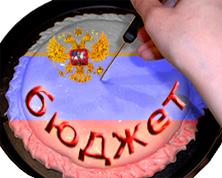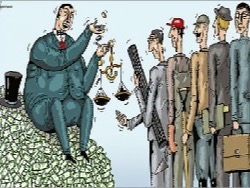
The Ministry of Finance initiated in 2017 to renew the annual increase in the unified tax on imputed income (UTII) for small businesses. In the next three years increasing the deflator coefficient, which depends on the value of the imputed income, it is proposed to increase by 14.7% (in 2017 — by 5.17%, in 2018 — by 4.81% and in 2019 — by 4.09%). For 2016, the core PCE deflator, which should take into account the rise in consumer prices have been frozen at the 2015 level.
In the published draft law of the Ministry of Finance about tax deductions for entrepreneurs who have bought cash registers new model explains why we need to unfreeze indexation UTII mentioned only the intention to change the mechanism of appointment of the raising factor — it is now fixed annually, and are invited to define it for the next three years. It will provide predictability of tax burden growth” for small businesses, explained the authors of the project. The press service of the Ministry of Finance told RBC that the coefficient for recalculation of imputed income is automatically indexed.
ENVD replaces small businesses pay almost all the taxes, but its use is restricted to certain types of activities (mainly in retail trade, food services, in the provision of household services). According to the Federal tax service, on January 1, 2016, this tax system was used almost 2.1 million small businesses — about 1.8 million individual entrepreneurs and more than 313 thousand, OOO. According to the Finance Ministry, current on 20 September 2016, local budgets received from the imputed income of 54.6 billion rubles, in 2015 revenues from this tax amounted to 78,5 billion rubles. Imputed income is one of the main sources of replenishment of municipal budgets.
Until 2016 imputed income per year increased — at the expense of regular growth-enhancing factor-deflator. This factor is one of the components of the multiplier the formula used in the calculation of the tax (the tax is not related to the real rate of return, the income to him “impute” power, for example, based on the total area of the shopping halls, etc.). Under the Tax code, the deflator coefficient is reviewed annually by the Ministry of economic development, every year it is installed, adjusted for inflation for the preceding year (that is, when setting the ratio in 2017 should take into account inflation for 2016). Proposed by the Finance Ministry the growth factor corresponds to the inflation forecasts from the projections set forth in the letter of 21 July 2016. Those projections indicate that in 2016, the Finance Ministry expects inflation at 5,9% in 2017 and 4.8% in 2018 and 4.5%.
But in 2016 this ratio, and accordingly, he imputed income has not increased: the Ministry of economic development first orders have sharply increased this rate by 2016 — almost 16%, but later supported the bill of the Chairman of the Duma budget Committee Andrey Makarov, who demanded to freeze the coefficient on the level of 2015 in order not to burden further the business in a difficult economic situation.
The press service of the MAYOR reported that in accordance with the current legislation of the deflator coefficient will be indexed for the next year automatically. At the end of 2014, President Vladimir Putin announced a four-year moratorium on changing tax environment for business. But the Finance Ministry’s proposal “does not increase the tax burden on small business compared to the current legislation”, said the Agency. With the economic development Ministry, which by law is responsible for the calculation of the coefficient-deflator, Finance your project has not yet been agreed, the response of the press services of both agencies.
If the Ministry proposal is accepted, the multiplying factor deflator in 2017 will increase from the current to 1,798 1,891 in 2018 — up to 1,982 in 2019 — up to 2,063, follows from the project of the Ministry of Finance.
This will lead to an increase in imputed income for small businesses 4-5% per year, considered an expert service for entrepreneurs “Circuit.Elba” company “SKB Kontur” Pavel Orlovskiy. In the case of organizations (OOO) you can talk about a simple tax increase in proportion to the deflator, provided that the municipal coefficients (step-down) and staff salaries will remain the same. Such an increase, the expert considers to be fair: the retail price of goods and services small business grow, and imputed income from the turnover does not. The only way to account for rising prices — increase correction coefficients, continued Orlovsky.
For example, for an LLC that owns the shop 50 square meters, without employees on the basis of existing indicators, provided by the Tax code in 2016 for a store you need to pay 291 thousand of tax UTII. According to the proposals of the Ministry of Finance in 2017, this amount will increase to 306 thousand rubles, in 2018 — to 321 thousand rubles, and in 2019 — to 334,5 thousand rubles.
For individual entrepreneurs, the calculation is more complicated: because of the peculiarities of the Russian legislation, in some cases, the imputed income may not increase at all or even be less present, added Orlowski. Nevertheless, the overall burden on this category of entrepreneurs, of course, increase, but not so much due UTII much due to insurance contributions due to the increase in the minimum wage up to 7.5 thousand RUB will increase in 2017 by almost 21%, the expert concluded.
The state Duma adopted in the second and third readings of the bill to extend the unified tax on imputed income (UTII) to 1 January 2021.








